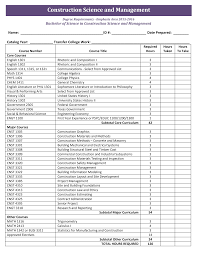
An HR manager plays a vital role in an organization. They oversee leadership, culture, compliance with employment law, safety and security, as well as the management of human resources. They must ensure that the company follows all applicable laws, including the Fair Labor Standards Act of 1938, which protects workers' overtime rights. HR managers also have responsibility for organizational development, recruitment, and training.
Recruiting
When HR managers recruit, they use a variety of recruitment techniques. They may use a variety of recruitment techniques depending on the industry or the job. They may also be responsible for onboarding new employees.
The recruitment process can be tedious and expensive, but there are ways you can streamline it. Integrating the recruitment process with an applicant tracking program is one way to achieve this. This will allow HR managers to ensure that they hire the right candidate for the job.

Hiring
It can be complicated to find an HR manager. Sometimes, in-house HR managers must do more than simply oversee a company’s personnel policies. Many businesses put off hiring one because they are not qualified enough. The hiring of one can help your company in many ways. Human Resource professionals can be a valuable resource for your company in many ways. They can provide expertise in recruitment and help to make the process more smooth.
HR can be a great resource for hiring managers, but they must respect the decisions of their employees. HR can help them to find the right candidates. Hiring managers will probably know the best person for their team. However, they may not be as familiar with hiring process procedures, so you should approach each hire as a partnership between HR and the hiring manager. Let them know the steps in the hiring process and work with you to make sure they are both satisfied. Trusting the hiring process will bring out the best in hiring managers.
Organizational development
An HR manager must create a training plan that motivates employees and supports organizational growth. They should also provide learning templates that align with the organization's goals. To facilitate learning, HR managers should track employees' progress and ensure that training continues to be tailored to employee needs. This can be made easier by an automated learning management system (LMS).
The goal of organizational development is to foster individual growth. This means incorporating employee feedback into decision-making, including involving all levels of employees, as well as providing meaningful training and education. These strategies should be focused on making sure employees are motivated and engaged, as well as passionate about their jobs. In addition, managers should stop ignoring employees who are low performers and design exit plans for them. Managers should also work to increase diversity within their organization. HR professionals need to reach out and give bonuses to minority candidates who refer to them, and to teach employees how to manage racial/cultural differences.

Security
Managers of human resources (HR), play a crucial role in maintaining a safe workplace. This is because employees can have access sensitive information which could help companies gain an edge in stock markets. HR managers need be careful about what information they share and how to handle it.
This is why it is so important to have a partnership between HR managers as well as security experts. Not only does HR play an important role in developing policies, but it also needs to ensure that new hires understand these policies and procedures. Clear and well-documented procedures for reporting and responding on security threats are essential. HR managers and security experts need to work together in order to improve a company's security culture.
FAQ
How can we make our company culture successful?
A successful company culture is one that makes people feel valued and respected.
It is founded on three basic principles:
-
Everybody can contribute something valuable
-
People are treated with respect
-
Respect is shared between individuals and groups
These values are reflected by the way people behave. They will treat others with respect and kindness.
They will listen respectfully to the opinions of others.
And they will encourage others to share ideas and feelings.
Company culture also encourages open communication, collaboration, and cooperation.
People feel safe to voice their opinions without fear of reprisal.
They understand that errors will be tolerated as long they are corrected honestly.
Finally, the company culture encourages honesty as well as integrity.
Everyone understands that the truth is always best.
Everyone recognizes that rules and regulations are important to follow.
And no one expects special treatment or favors.
How can a manager motivate his/her staff?
Motivation is the desire for success.
You can get motivated by doing something enjoyable.
Another way to get motivated is to see yourself as a contributor to the success of the company.
For example, if your goal is to become a physician, you will probably find it more motivational to see patients rather than to read a lot of medicine books.
Another type of motivation comes from within.
You may feel strongly that you are responsible to help others.
Maybe you like working hard.
Ask yourself why you aren't feeling motivated.
Next, think of ways you can improve your motivation.
What is the difference between project and program?
A program is permanent while a project can be temporary.
A project is usually defined by a clear goal and a set deadline.
It is often carried out by a team of people who report back to someone else.
A program often has a set goals and objectives.
It is often done by one person.
What are the 5 management processes?
These five stages are: planning, execution monitoring, review and evaluation.
Planning is about setting goals for your future. It involves setting goals and making plans.
Execution is when you actually execute the plans. You need to make sure they're followed by everyone involved.
Monitoring is the process of evaluating your progress toward achieving your objectives. Regular reviews should be done of your performance against targets or budgets.
Every year, there are reviews. These reviews allow you to evaluate whether the year was successful. If not, then it may be possible to make adjustments in order to improve performance next time.
After the annual review is complete, evaluations are conducted. It helps you identify the successes and failures. It also provides feedback on the performance of people.
Statistics
- Our program is 100% engineered for your success. (online.uc.edu)
- This field is expected to grow about 7% by 2028, a bit faster than the national average for job growth. (wgu.edu)
- The average salary for financial advisors in 2021 is around $60,000 per year, with the top 10% of the profession making more than $111,000 per year. (wgu.edu)
- Hire the top business lawyers and save up to 60% on legal fees (upcounsel.com)
- The profession is expected to grow 7% by 2028, a bit faster than the national average. (wgu.edu)
External Links
How To
How do you use the 5S in your office?
Your workplace will be more efficient if you organize it properly. A clean desk, a neat room, and a well-organized space are all key factors in ensuring everyone is productive. The five S's, Sort, Shine. Sweep. Separate. and Store, work together to make sure that every inch of space can be used efficiently and effectively. These steps will be covered one-by-one and how they can work in any kind of setting.
-
Sort. Get rid of clutter and papers so you don't have to waste time looking for the right item. This means that you should put things where they are most useful. You should keep it close to the area where you research or look up information. You should also consider whether you really need to keep something around -- if it doesn't serve a useful function, get rid of it!
-
Shine. Anything that could cause harm or damage to others should be thrown out. For example, if you have a lot of pens lying around, find a way to store them safely. A pen holder might be a good investment, as it will prevent you from losing pens.
-
Sweep. You should clean your surfaces often to prevent dirt and grime from building up. You might want to purchase dusting equipment in order to make sure that every surface is as clean as possible. You can even set aside a specific area for sweeping and dusting to keep your workstation looking tidy.
-
Separate. It will help you save time and make it easier to dispose of your trash. Trash cans are usually placed strategically throughout the office so that you can easily throw out the garbage without searching for it. It's a great idea to place trash bags beside each bin, so you don’t have to go through tons of garbage to find what it is.